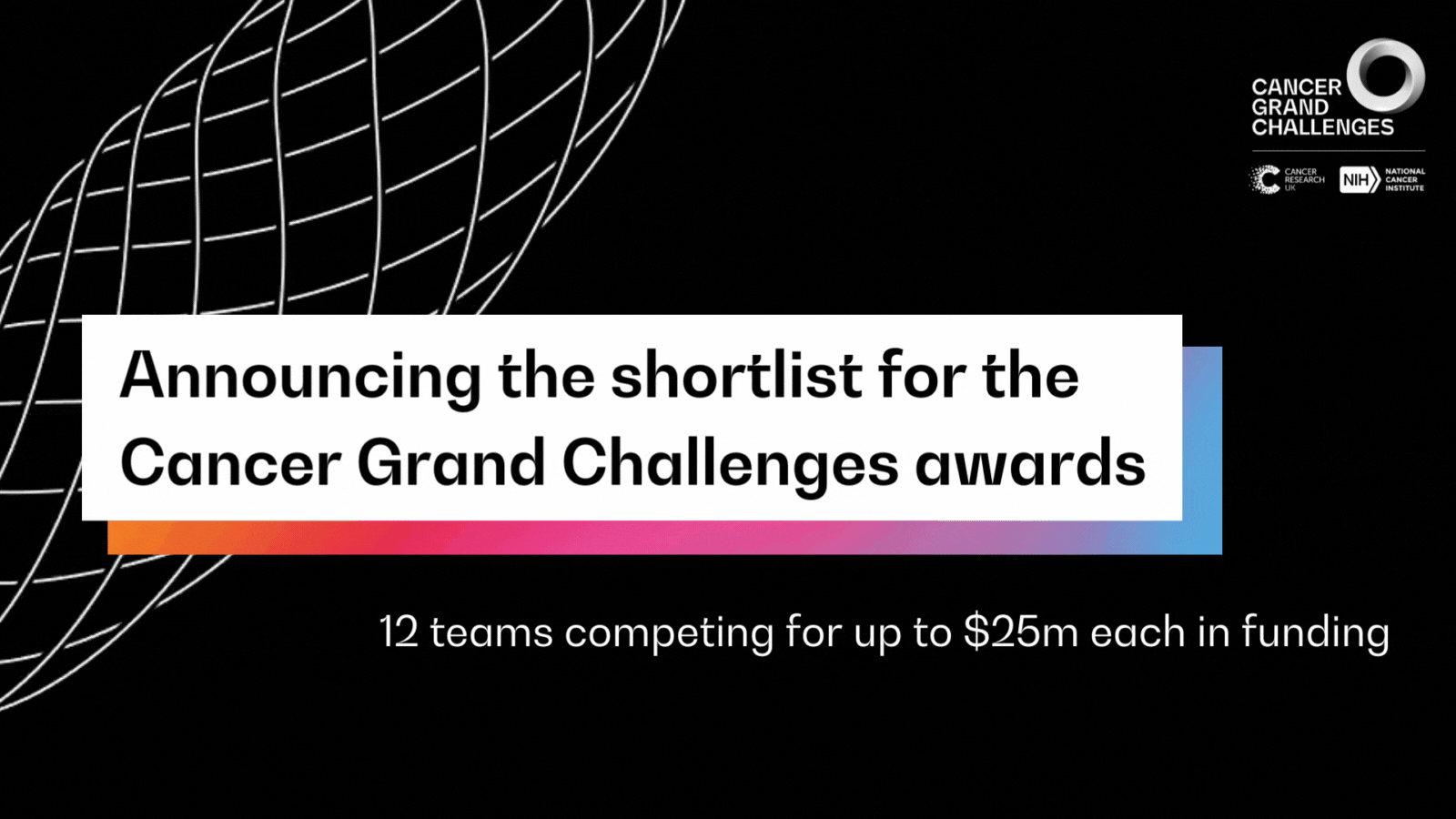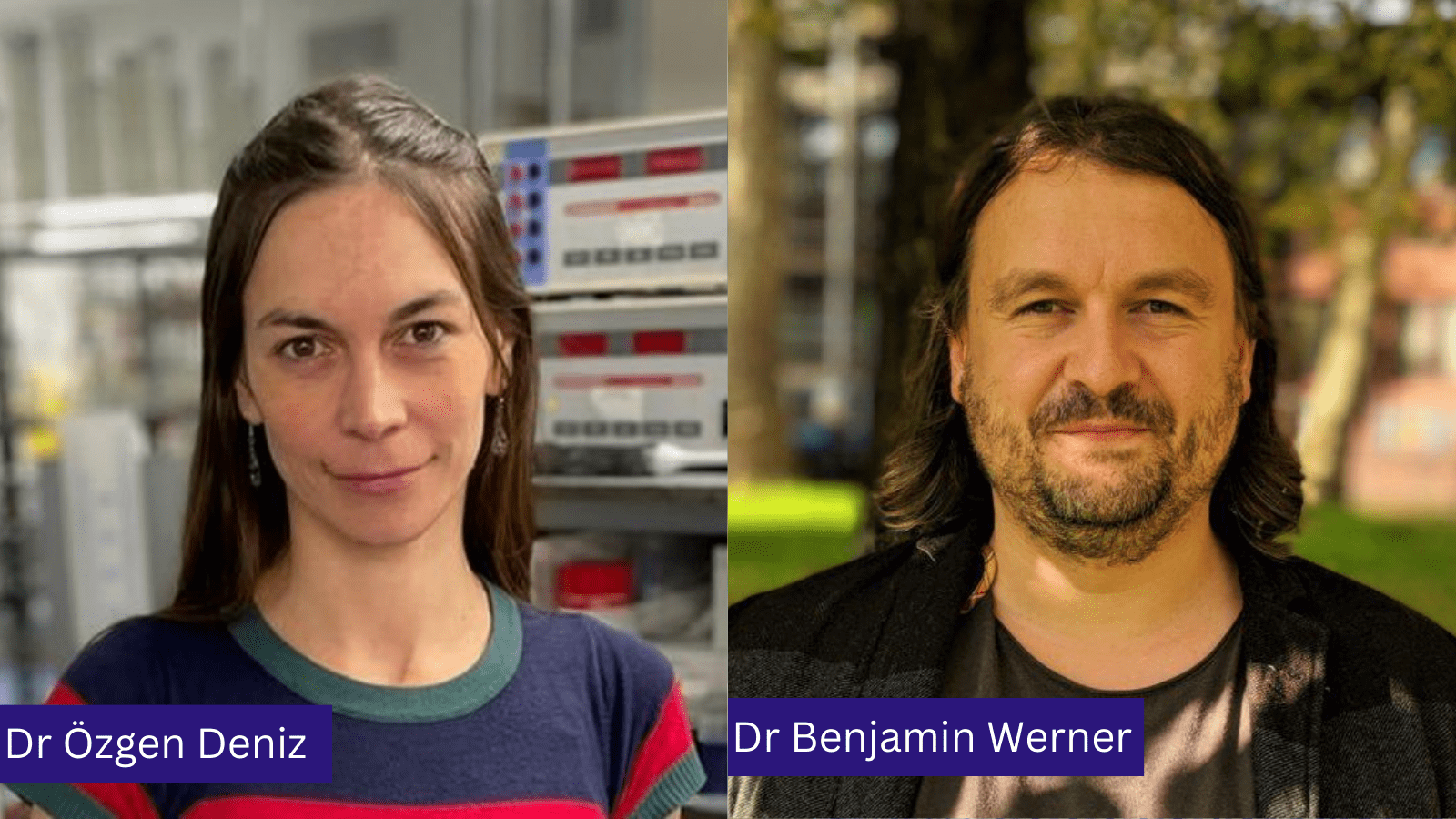BCI researchers part of international team shortlisted for Cancer Grand Challenges award
Dr Özgen Deniz and Dr Benjamin Werner of Barts Cancer Institute, Queen Mary University of London, are part of an international team that has been shortlisted for a Cancer Grand Challenges award. This funding supports the world's brightest minds to come together against cancer's toughest challenges.
Cancer Grand Challenges was founded by the two largest funders of cancer research in the world – Cancer Research UK and the National Cancer Institute in the US. Every two years, they work with the global research community to identify some of the most complex problems in cancer research – those which, if solved, could make the biggest difference to progress. The full awards offer $25m of funding to world-class teams that unite researchers from across disciplines and nations to think differently and, ultimately, to change outcomes for people with cancer.

In March 2023, nine challenges were announced, and researchers were invited to build their teams and submit an expression of interest. Out of 178 applications, team decrypTEd has been selected as one of the 12 shortlisted teams. DecrypTEd unites researchers across Switzerland, France, the US and the UK, including Dr Deniz and Dr Werner at the Barts Cancer Institute. The shortlisted teams have been awarded £30,000 of seed funding to further develop their ideas and build their full applications in the hope of being selected for the full award.

Decrypting the role of mobile DNA in cancer
Team decrypTEd is an international collaboration led by Professor Didier Trono at the École Polytechnique Fédérale de Lausanne in Switzerland. Together, the investigators aim to take on the challenge of understanding retrotransposable elements – segments of genetic code with the ability to jump around to different locations in our DNA. These elements, some originating from retroviruses, integrated into our genetic codes millions of years ago and today comprise more than half of our entire genome. Ordinarily, these pieces of DNA are either kept silent or are adopted by our cells to carry out specific functions. However, when a normal cell begins to transform into a cancer cell, these silent elements can suddenly become reactivated, which can destabilise the genome and accelerate the development of cancer.
Until recently, we didn't have the tools to study retrotransposable elements to truly understand how they contribute to cancer. But now, team decrypTEd plans to harness the latest tools and technology to interrogate how these sequences drive cancer evolution. By combining expertise from across evolutionary biology, cancer genomics, virology, bioinformatics, mathematics and clinical research, the team aims to create an incredibly detailed atlas of transposable elements and their regulators and define their roles in tumour evolution. This ambitious project seeks to demystify an aspect of cancer biology that has remained poorly understood, which could, in future, offer new opportunities for the development of therapies that stop retrotransposable elements from contributing to cancer development.
Uniting to tackle cancer's toughest challenges
For Dr Werner, team decrypTEd represents the second time he has contributed to Cancer Grand Challenges. He is also part of an existing team called eDyNAmiC who received full funding in 2022 to study extrachromosomal DNA – DNA that exists outside of its normal chromosome packaging and is thought to help cancer to rapidly adapt and evolve.
Conversely, team decrypTEd represents Dr Deniz' first experience of operating with a Cancer Grand Challenges team. Studying retrotransposable elements in cancer is a core focus of Dr Deniz' work, so when the challenge was announced, she reached out to her current teammates to express her interest and contribute her expertise. "It's a great opportunity," she comments. "Our team brings together people who work in completely different areas – as a result, the ideas that come out of our group discussions are ones that we could never come up with alone.”
"It's a great opportunity. Our team brings together people who work in completely different areas – as a result, the ideas that come out of our group discussions are ones that we could never come up with alone.”
— Dr Özgen Deniz
The teams will submit their full applications in October, and fully funded teams will be announced in March 2024. Until then, team decrypTEd plans to arrange to meet in person to develop their ambitious ideas.
Category: General News, Grants & Awards

No comments yet